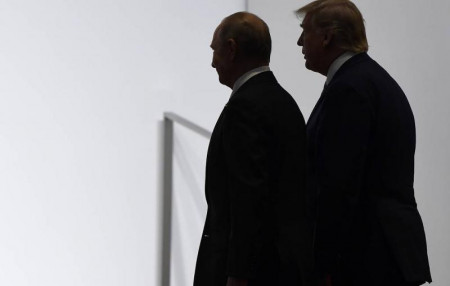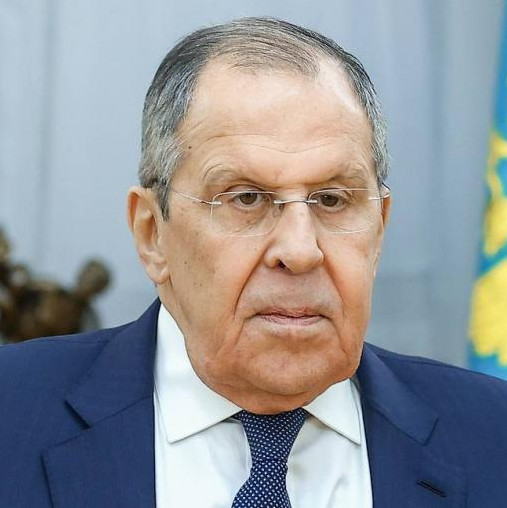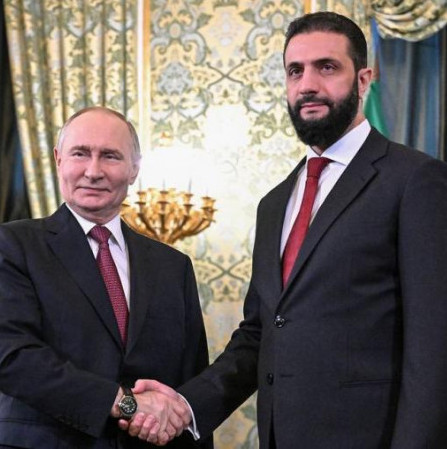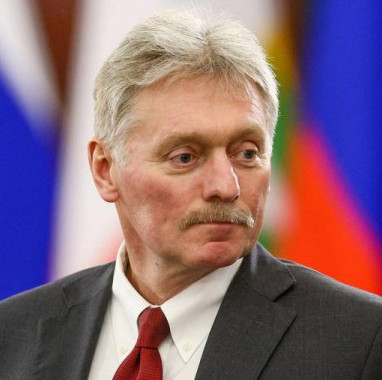
The telephone talks between Russian President Vladimir Putin and American leader Donald Trump of February 12 have horrified Europe and, most certainly, Kiev. The conversation has become Putin and Trump’s first direct communication since February 2022.
In the aftermath, Donald Trump said they could have a face-to-face meeting in Saudi Arabia in the foreseeable future. The very fact of bilateral talks between Putin and Trump — without Europe or Ukraine engaged, and even without notifying them — has had a bombshell effect among the Europeans and in Kiev. Britain’s The Economist has defined things quite accurately: "A phone call sparks fear and dread in Kiev and other European capitals."
"Ever since Donald Trump vowed during his election campaign to end the war in Ukraine quickly, President Volodymyr Zelensky and his European supporters have feared abandonment by America. Their dread grew on February 12th, when Mr. Trump spoke by phone with Russia’s leader Vladimir Putin, without coordinating the details beforehand with Ukraine, and announced that negotiations to end the war would start ‘immediately.’ He later said he might meet Mr. Putin in person in Saudi Arabia," The Economist writes, noting that Zelensky himself warned against such a unilateral step by America just a few hours ago in an interview with the same outlet.
"Negotiations," The Economist continues, " direct contacts. But Mr. Trump is in effect starting to normalize relations with Russia without obtaining tangible concessions. Indeed, Mr. Putin’s spokesman said talks had to involve more than the cessation of fighting; it was necessary to ‘address the root causes of the conflict,’ which in Kremlin-speak means absorbing Ukraine into a Russian sphere of influence.”
Trump's statement caught European leaders so off guard that no one now comprehends how to proceed, the American Politico outlet reports. "It was the moment Europeans and Ukrainians have been dreading for months, if not years. Yet when it finally came, on a wintry afternoon as Kiev froze, the suddenness and scale of Donald Trump’s peace plan still left Ukraine’s allies in shock," the piece points out.
Western media have especially emphasized the fact that Zelensky is not part of the dialogue regardless of constantly declaring "unfeasibility" of any decision about Ukraine without Ukraine.
"Ukrainian President Volodymyr Zelensky was not included (in preparations for the Trump-Putin dialogue), in an alarming sign for the government in Kiev. Zelensky was at the center of everything the Biden administration did on the war. Trump did call Zelensky later Wednesday, but the American president is already fueling fears he’ll cook up a resolution that favors Russia," CNN, the US TV company, claims.
"No one in the US or Europe thought the clock could be turned back to 2014. And Ukraine was unable to win back its land on the battlefield despite billions of dollars in Western aid <…> Trump, the supposed deal maker supreme, deprived the Ukrainians of a bargaining chip that could have been used to win concessions from his old friend Putin," CNN comments.
"Will Trump sideline Ukraine in his talks with Putin?" Britain’s The Times wonders, keeping to dwell on Europe’s shared concern that Zelensky and Europe have been left out of negotiations. "The Russian president will take contact [with Trump] as a tacit approach to rebuild bridges with his country — and a boost for his ambitions to retain Ukraine territory [for Russia]," the oldest British newspaper writes.
In Kiev, the call is likely to raise concerns that Trump is planning to sideline Ukraine in the peace talks, the piece goes on to say. However, picking up the phone to talk to Putin is a lot easier than ending Europe's biggest war since 1945. There are questions about the US president's ability to stop the fighting without completely capitulating to Moscow's demands, The Times exaggerates.
"Trump says call with Putin is beginning of Ukraine peace negotiations," writes The New York Times, one of America’s leading newspapers.
The outlet leads its readers to the conclusion that the peace talks planned are more beneficial to Moscow than to Washington, given clear proof that Moscow is by no means diplomatically isolated, as the former American administration wanted to present it. "For Mr. Putin, the call was a major milestone, signifying the collapse of Western efforts to isolate him diplomatically after he invaded Ukraine nearly three years ago. Ever since Mr. Trump’s re-election in November, the Russian president has heaped praise on Mr. Trump, underlining the Kremlin’s hope that the new American leader could reshape Moscow’s relationship with Washington and back away from supporting Ukraine," The NYT notes.
The newspaper also pushes the idea of isolating Ukraine itself in the context of Moscow-Washington dialogue that has gotten underway. Trump's announcement of plans to cooperate with Russia on a cease-fire has come amid concerns in Ukraine that Mr. Putin and Mr. Trump would establish a close relationship to sideline Ukraine from any peace deal.
The Washington Post, the second pillar of American journalism, sees the future of Ukraine in dark shades, disappointedly pointing to signs of a thaw between the United States and Russia. The newspaper writes that the call "illustrated the deepening alliance between Trump and Putin in ways that are likely to unsettle Zelensky. In offering the first outline of his vision for a peace deal, Trump focused heavily on the terms that Russia cares most about, and he appeared to rule out NATO membership for Ukraine while placing the bulk of the burden for defending it on Europe.”
Meanwhile, not everyone in Europe seems concerned about the fact that Zelensky, European bureaucrats and national leaders have been left out of the Ukraine dialogue. NATO Secretary General Mark Rutte, who knows perfectly well who is the North Atlantic Alliance’s real boss, has "boldly" sided with Trump. Rutte says he is fully supportive of "peace talks on Ukraine" as NATO wants lasting peace no less than the United States. "It was a successful phone call. We all want peace in Ukraine," the Secretary General said despite having used to advocate further military assistance to Ukraine. A great turn on a dime, mind you.


